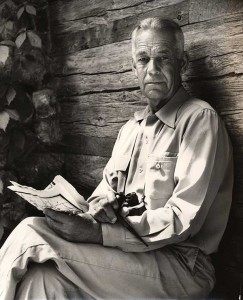A Quote by William Shakespeare
This was the noblest Roman of them all. All the conspirators, save only he,Did that they did in envy of Caesar;He only, in a general honest thoughtAnd common good to all, made one of them. His life was gentle, and the elementsSo mixd in him that Nature might stand upAnd say to all the world, This was a man!
Related Quotes
Is it any wonder the power this man held over me - this man who did not run from his demons like most of us do, but embraced them as his own, clutching them to his heart in a choke-hold grip. He did not try to escape them by denying them or drugging them or bargaining with them. He met them where they lived, in the secret place most of us keep hidden. Warthrop was Warthrop down to the marrow of his bones, for his demons defined him; they breathed the breath of life into him; and without them, he would go down, as most of us do, into the purgatorial fog of a life unrealized.
The trouble with him was that he was without imagination. He was quick and alert in the things of life, but only in the things, and not in the significances. Fifty degrees below zero meant eighty-odd degrees of frost. Such fact impressed him as being cold and uncomfortable, and that was all. It did not lead him to meditate upon his frailty as a creature of temperature, and upon man's frailty in general, able only to live within certain narrow limits of heat and cold; and from there on it did not lead him to the conjectural field of immortality and man's place in the universe.
Envy, envy eats them alive. If you had money, they’d envy you that. But since you don’t, they envy you for having such a good, bright, loving daughter. They envy you for just being a happy man. They envy you for not envying them. One of the greatest sorrows of human existence is that some people aren’t happy merely to be alive but find their happiness only in the misery of others.
Did you not look upon the world this morning and imagine it as the boy might see it? And did you not recognize the mist and the dew and the birdsong as elements not of a place or a time but of a spirit? And did you not envy the boy his spirit? For you know there can be no power over him who freely gives what another would take. Such a one has the capacity to love. Freely, naively, to say I do.
Why, friends, you go to do you know not what: Wherein hath Caesar thus deserved your loves? Alas, you know not: I must tell you then: You have forgot the will I told you of. . . . . Here is the will, and under Caesar's seal. To every Roman citizen he gives, To every several man, seventy-five drachmas. . . . . Moreover, he hath left you all his walks, His private arbours and new-planted orchards, On this side Tiber; he hath left them you, And to your heirs for ever, common pleasures, To walk abroad, and recreate yourselves. Here was a Caesar! when comes such another?
At school he had done things which had formerly seemed to him very horrid and made him feel disgusted with himself when he did them; but when later on he saw that such actions were done by people of good position and that they did not regard them as wrong, he was able not exactly to regard them as right, but to forget about them entirely or not be at all troubled at remembering them.
Beavers build houses; but they build them in nowise differently, or better now, than they did, five thousand years ago. Ants, and honey-bees, provide food for winter; but just in the same way they did, when Solomon referred the sluggard to them as patterns of prudence. Man is not the only animal who labors; but he is the only one who improves his workmanship.
If what that man did in his life, makes the blood pulse through the body of others, and makes them believe deeper in something larger than life, then his essence, his spirit, will be immortalized by the storytellers, by the loyalty, by the memory, of those who honor him and make whatever the man did live forever.
Never did he once consider directing his hatred toward the hunters. Such an emotion would have destroyed him ... His subconscious knew what his min did not guess-that hating them would have consumed him, burned him up like a piece of soft coal, leaving only flakes of ash and a question mark of smoke.
From this outer edge of his life, looking back, there was only one remorse, and that was only that he wished to go on living. Did all dying people feel this way, as if they had never lived? Did life seem that short, indeed, over and done before you took a breath? Did it seem this abrupt and impossible to everyone, or only to himself, here, now, with a few hours left to him for thought and deliberation?
Man's history is woven into waterways, for not only did he live beside them, but he used them as highways for hunting, exploration, and trade. Water assured his welfare, its absence meant migration or death, its constancy nourished his spirit. A mountain, a desert, or a great forest might serve his need of strength, but water reflects his inner needs.





































